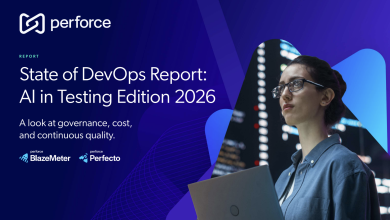
“Will AI take my job?”
It’s one of the most searched questions today—and for good reason. As companies like Microsoft and Duolingo restructure and replace human roles with generative AI, employees are being forced to confront a hard truth: the workplace is changing faster than most people are prepared for.
But let’s be clear. The real issue isn’t AI – it’s how organisations are using it. At Duolingo, the backlash wasn’t just about replacing contractors with AI tools. It was about broken trust.
People don’t fear automation as much as they fear being made irrelevant, quietly and without a plan. When businesses adopt AI purely for cost-cutting, without transparency or a road map, they lose the loyalty of both employees and users.
I work with global organisations every day to design AI strategy and scale automation. And I’ve seen firsthand the tension between business ambition and employee reality. But I’ve also seen what works – and how professionals can thrive in this new landscape.
If you’re worried about being replaced, here’s how to take control of your future.
1. Don’t Compete with AI – Command It
Trying to outperform AI at tasks it does well – summarising documents, generating emails, analysing basic patterns – is a losing game. But AI still needs direction, context, and critical oversight. That’s where your opportunity lies.
Start thinking like an orchestrator, not just an executor. How can AI extend your output? Where does it add speed, and where does it need a human in the loop?
You don’t need to be a machine learning expert to get started. Spend time with (some of my favorite) tools like ChatGPT, Claude, or Perplexity. Test their limits. Use them to reduce repetitive work and focus on higher-impact decisions. The key is to shift from doing the work to designing the system that does the work.
Ask yourself: How can I use AI to double my impact without sacrificing quality? Then make that value visible to your team or leadership.
2. Know What Breaks Without You
If AI replaced part of your workflow tomorrow – what would go wrong?
This is your strategic edge. AI can produce results, but it still lacks the ability to make judgment calls, read between the lines, or adapt to nuance. Your domain expertise, pattern recognition, and situational awareness still matter – a lot.
Take inventory. What outcomes depend on your judgment? What decisions do others rely on you for? These are the moments where your experience is irreplaceable – and they’re often under-communicated. Make them visible.
3. Be the Translator Between Business and Tech
One of the most valuable (and overlooked) roles in today’s workforce is the AI translator – the person who understands both how AI works and how it delivers business value.
Many companies still struggle to bridge this gap. They either adopt AI blindly or reject it out of fear. If you can explain what a tool does, what data it needs, and how it improves outcomes – in plain, actionable language—you instantly become more valuable.
It’s not about sounding technical. It’s about being clear and credible. Say, “This tool saves our team five hours a week on inbox triage,” not “It uses NLP models for semantic parsing.”
4. Measure the Impact of What You Automate
Automation is not the end of your job – it’s a shift in your value.
If you use AI to save time or streamline processes, quantify what that enables. Did it reduce errors? Improve speed? Let your team tackle bigger problems?
Track those results and share them. If your manager sees you not just using AI but tying it to outcomes, you’ll be seen as a multiplier – not a cost.
5. Treat Your Career Like a Startup
We tell businesses to treat AI like a transformation, not a quick fix. The same applies to your career.
What’s your value proposition in an AI-first world? What do you do better with AI than without it? What are you learning, testing, and evolving?
Build a portfolio of real results – experiments with tools, pilot projects, process improvements. Adaptability and initiative will matter more than titles or tenure.
Final Thought: AI Isn’t the Threat – Apathy Is
It’s normal to feel uneasy about where things are headed. But waiting and hoping it won’t affect you isn’t a strategy. Companies don’t have all the answers either – they’re figuring it out as they go.
The good news? AI doesn’t replace people who know how to use it. It makes them more valuable. You don’t need to be technical. You just need to stay curious, take initiative, and keep learning.
The people who move first, try things out, and stay flexible are the ones who will shape what’s next.




